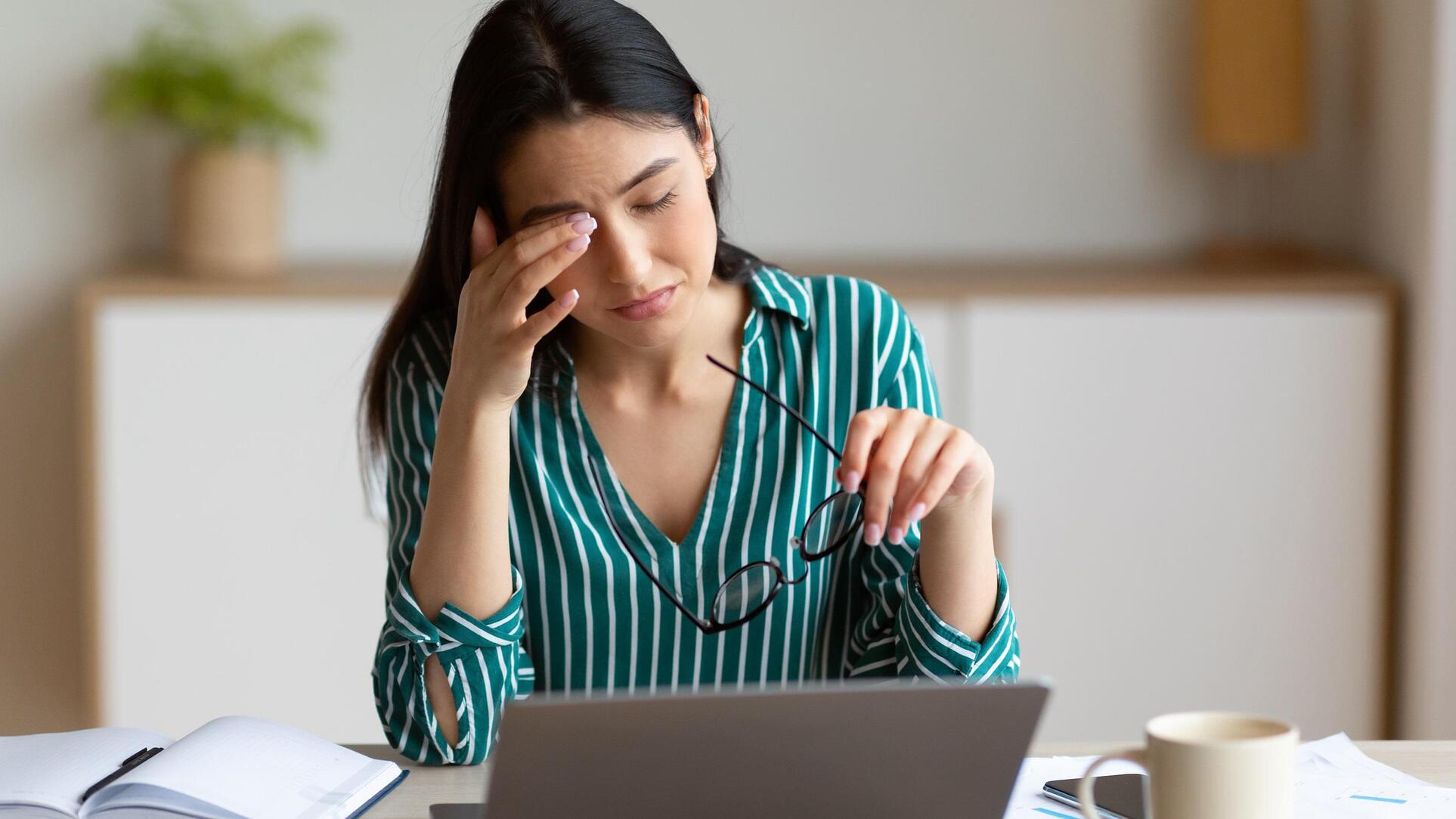
Eye Strain: How To Relieve & Reduce Symptoms
Eye strain is a common issue, especially in our computer/smartphone-dominated world. Studies have shown that over 50% of computer users struggle with digital eye strain (DES). Driving can also cause visual fatigue, which is a serious safety risk. Luckily, there’s plenty you can do to reduce your symptoms and maintain healthy vision.
What causes eye strain?
The most common cause of eye strain (aka, “asthenopia”) is prolonged exposure to digital screens. Our devices give off blue light, which is harsh on our eyes and causes fatigue.
Of course, many other factors can lead to eye strain:
- Reading for long periods without resting your eyes may cause eye strain.
- Driving for long distances without rest is another common cause.
- Exposure to bright lights or straining to see in dim light can also create stress on your eyes.
- Simply being stressed out or overly tired can wear out your vision.
Concerned about eye strain while driving? Check out our guide to finding the best driving sunglasses.
What are the symptoms of eye strain?
Eye strain symptoms commonly include the following:
- Tired or sore eyes
- Dry eyes
- Headaches
- Sensitivity to light
- Difficulty concentrating
With this in mind, let’s look at some simple, natural ways to remedy asthenopia and even prevent it.
Follow these five steps to reduce eye strain
Since most eye strain is caused by digital devices, many of the best things you can do include taking breaks, making slight changes to your environment, and wearing the proper eyewear.
1. Use the 20-20-20 rule
Every 20 minutes, take a 20-second break, and look at something 20 feet away from you. This will refocus your vision and flex your ocular muscles. You should make it a point to stand up and take a short walk while giving your eyes a rest.
2. Adjust brightness and lighting
Changing the brightness setting on your monitor can help lessen strain on your vision. Many laptops and computer screens have blue light reduction settings. Use these whenever you can.
Likewise, ensure your workspace has plenty of lighting so you can clearly see your surroundings. Remember, blue light is only one of many things that strain your eyes. Struggling to see in low light can also affect your vision.
3. Use eye drops
If your eyes are feeling dry or itchy, try using eye drops. We tend to blink less while focusing on screens and the road. Fortunately, a bottle of artificial tears will keep moisture in your eyes and alleviate your symptoms.
4. Change the airflow of your environment
Air flow from fans, air conditioners, or heaters can affect your eyes as well. If you have circulating air drying out your eyes, try adjusting their direction or where you are seated. You can also use a humidifier to keep the air in your workspace from becoming too dry.
5. Wear Blue Light Blocking Lenses
Blue light blocking lens coatings can minimize the amount of blue light that enters your eyes. These popular lenses are perfect for people who spend most of their time in front of computers and other devices while at work. They can also be used outside of work for the same benefits.
Reading glasses may also benefit you if you spend time looking at books and paper documents. You can also consider lightly tinted glasses for indoor use to fight blue light and glare.
Do you need reading glasses? Look for these common signs.
Reduce eye strain with blue light blocking lenses from Yesglasses
Eye Strain doesn’t have to keep you down. With blue light blocking coatings, our lenses can relieve eye strain while helping you see comfortably. Our large selection of frame materials and styles will ensure that you find the right glasses for you.
Shop All Blue Light Blocking GlassesDo you spend a lot of your time looking at a monitor or laptop display? See our tips for how to choose computer glasses.